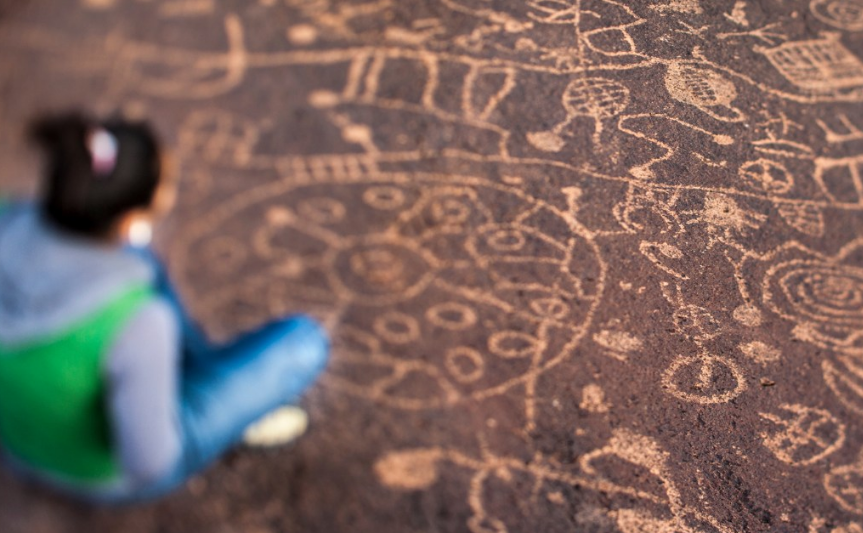
- Details
- By Levi Rickert
SEATTLE — On Tuesday, the Trump administration released its plan to dismantle the U.S. Department of Education. The plan includes provisions to transfer most American Indian and Alaska Native programs to the U.S. Department of the Interior.
The agency’s Office of Indian Education will be transferred to the Interior Department, while oversight of the Fulbright-Hays overseas research program and all federal international education and foreign language initiatives will shift to the State Department. The department will also move its campus child care access program and foreign medical school accreditation program to the Department of Health and Human Services.
The National Congress of American Indians condemned the executive order to begin dismantling the Department of Education, calling the move reckless, politically motivated and a direct threat to Native students, tribal sovereignty and the federal government’s trust and treaty obligations.
“Let us be clear: This is not just an administrative change – it’s an attack on the fundamental right of Native students to a quality education that reflects their identity, history, and sovereignty,” NCAI President Mark Macarro said from the organization’s 82nd Annual Convention and Marketplace in Seattle. “The trust and treaty responsibilities of the United States are not optional. Dismantling the Department of Education is a betrayal to Native Nations and future generations.”
“One problem with this decision is there was no tribal consultation, " Macarro said to Native News Online.
Ahniwake Rose, president of the American Indian Higher Education Consortium, said there are still many unanswered questions about how funding for Tribal Colleges and Universities (TCUs), that once went through a single department will now be handled by multiple agencies.
“When my TCUs have a question, they’re going to be three agencies they might possibly have to go to for solutions. So we’re going to need really clear-cut roles, delineations for who does what, when, and where,” she said. “To be able to be part of the conversation as it’s being drafted would have been incredibly helpful.”
The impacted Indian education programs are:
Elementary and secondary education:
- Indian Education Grants to LEAs
- Special programs for Indian children — Indian Education Professional Development Grant Program (PD)
- Special programs for Indian children — Demonstration grants (DEMO)
- State Tribal Education Partnership Program (STEP)
- Native American and Alaska Native Language Program (NALED)
- Native American Language Resource Center Program (NALRC)
- Alaska Native Education Program (ANEP)
- Native Hawaiian Education Program (NHEP) and the Native Hawaiian Education Council
- Native American and Alaska Native Children in School (NAM) program
Postsecondary:
- American Indian Tribally Controlled Colleges and Universities authorized under Title III, Part A of the Higher Education Act, Section 316 and Part F of the Higher Education Act, Section 371
- Indian Education-related Research and Development Infrastructure Grant program components authorized under Title VII, Part B of the Higher Education Act
Office of Career, Technical, and Adult Education:
- Tribally Controlled Postsecondary Career and Technical Institutions program
Office of Special Education and Rehabilitative Services:
- American Indian Vocational Rehabilitation Services program
- Continued support for IDEA Part D funding for Tribally controlled colleges and universities (TCCUs)
View the partnership fact sheet for Indian education here.
More Stories Like This
Bard College Center for Indigenous Studies (CfIS) Hosts Annual Symposium With Keynote Speaker Miranda Belarde-Lewis on March 9–10American Indian College Fund Announces Spring 2026 Faculty Fellow Cohort
Navajo Nation Signs $19 Million Diné Higher Education Grant Fund Act into Law
Dr. Shelly C. Lowe to Be Inaugurated as IAIA President March 26–27
Tlingit Language Courses Expand for Students to Learn With Families At-Home
Help us defend tribal sovereignty.
At Native News Online, our mission is rooted in telling the stories that strengthen sovereignty and uplift Indigenous voices — not just at year’s end, but every single day.
Because of your generosity last year, we were able to keep our reporters on the ground in tribal communities, at national gatherings and in the halls of Congress — covering the issues that matter most to Indian Country: sovereignty, culture, education, health and economic opportunity.
That support sustained us through a tough year in 2025. Now, as we look to the year ahead, we need your help right now to ensure warrior journalism remains strong — reporting that defends tribal sovereignty, amplifies Native truth, and holds power accountable.
 The stakes couldn't be higher. Your support keeps Native voices heard, Native stories told and Native sovereignty defended.
The stakes couldn't be higher. Your support keeps Native voices heard, Native stories told and Native sovereignty defended.
Stand with Warrior Journalism today.
Levi Rickert (Potawatomi), Editor & Publisher

